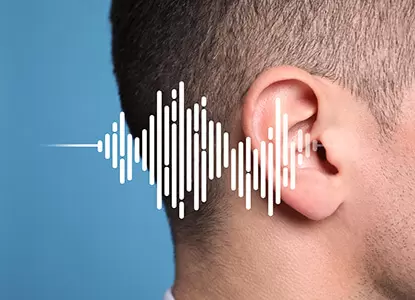Hearing Health Exercises: Strengthening Your Auditory System
Hearing is one of our most vital senses, essential for communication, social interaction, and overall well-being. As we age or encounter noise pollution, our hearing capability can diminish, leading to various complications. While traditional methods like hearing aids and medical interventions are common ways to address hearing loss, incorporating hearing health exercises into your routine can also play a significant role in maintaining and enhancing your auditory system. This article explores effective exercises and practices aimed at bolstering hearing health.

Understanding Hearing Health
Before diving into specific exercises, it’s essential to understand hearing health. Hearing loss can occur due to various factors, including age, exposure to loud noises, genetic predisposition, and certain medical conditions. Regular hearing check-ups and being mindful of sound levels are crucial. However, just as we exercise our bodies and minds, we can engage in activities that stimulate and support our auditory systems.
Effective Hearing Health Exercises
1. Auditory Training
- Listening to sounds: Play a series of sounds or musical notes and try to identify each one. Gradually increase the complexity as you improve.
- Sound repetition: Have a partner say phrases or sentences at varying volumes and ask you to repeat them. This practice can enhance your clarity in distinguishing different sounds.
2. Environmental Sound Awareness
This exercise focuses on improving your ability to recognize and differentiate between sounds in your environment:
- Mindful listening: Set aside time to sit quietly and focus on the sounds around you. Identify each sound, whether it’s the rustling of leaves, the chirping of birds, or distant traffic noise. This builds awareness and sharpens your ability to discern various auditory cues.
3. Rhythm and Beat Practice
- Clapping to a beat: Listen to different rhythms and try to replicate them by clapping. As you become more adept, challenge yourself with faster or more complex rhythms.
- Musical instruments: Engaging with musical instruments, such as drums or tambourines, can also help you familiarize yourself with rhythm and pitch.
4. Vowel and Consonant Discrimination
- Vowel discernment: Practice listening to different vowel sounds (e.g., “a,” “e,” “i,” “o,” “u”) and repeat them aloud. This can help in recognizing spoken language nuances.
- Consonant exercises: Focus on pairs of words that differ by one consonant (e.g., “bat” vs. “pat”). Practice pronouncing and identifying these words to enhance clarity.
5. Balance Exercises
- Single-leg stands: Practice standing on one leg for up to 30 seconds, then switch. This enhances balance and coordination, indirectly benefiting hearing by improving overall body awareness.
- Yoga and tai chi: These mind-body practices promote balance, calmness, and increased awareness of your body in space, which can positively impact auditory processing.
6. Social Listening Activities
- Join discussions: Participate in group conversations where multiple people are speaking. Practice focusing on one voice at a time while filtering background noise.
- Storytelling circles: Start or join a storytelling group where you listen and respond to narratives. This promotes active listening and comprehension skills.
Additional Tips for Hearing Health
- Healthy diet: Consuming a diet rich in antioxidants, vitamins, and minerals can support auditory health. Foods high in omega-3 fatty acids (like salmon) and vitamins C and E are particularly beneficial.
- Regular check-ups: Don’t skip your audiologist appointments; early detection of hearing issues can prevent further damage.
- Protect your ears: Avoid prolonged exposure to loud noises, and consider using earplugs when in loud environments.
- Stay active: Regular exercise improves blood circulation, benefiting all bodily systems, including your hearing.
